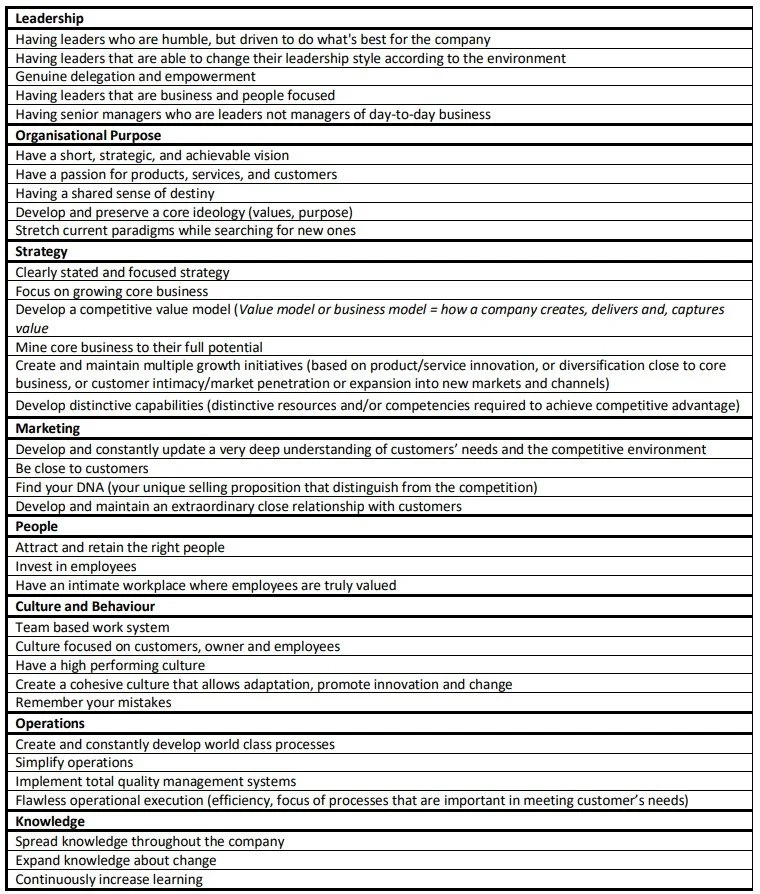On Business Success
Ten years ago, during my MBA I embarked on research to try to understand what success is and how to become successful. I noticed that every professor would emphasize the importance of certain factors in various fields such as finance, strategy, marketing, etc. I believed that there must be something that stands out, something that if implemented, would lead to repeated success - the holy grail. However, before pursuing this, I needed to define what business success actually means and how to measure it.
I reviewed two dozen studies conducted among successful companies, some of which resulted in best-selling books such as "In Search of Excellence" and "Good to Great." The findings were surprising. There were diverse views among leaders regarding what constitutes success. Financial success was one perspective, but the specific metrics varied from company to company and leader to leader. Some focused on growth, market capitalization, stock return, return on capital employed, etc. Non-financial perspectives of success were also found, especially among small and medium-sized companies where founders took pride in running their businesses. Serving society and delighting customers were also seen as forms of business success.
Rather than favoring one perspective of business success over another, a broader perspective suggests that companies simply want to be successful, regardless of how success is defined. It is specific to each company. Some companies define success from an economic standpoint, while others prioritize dimensions rooted in society. Defining business success, or what matters, is crucial because it allows managers to clearly define the company's vision and future state. It also helps create commitment among employees. Once business success is defined, managers can align their management practices to achieve the desired results. Without a clear understanding of the desired success goal, managers cannot effectively determine how to achieve it.
Once I established what matters in business success, the next question was how to become successful. Unsatisfied with the explanations provided by professors, I embarked on a journey to find the holy grail. It didn't take long to realize that the studies I reviewed had identified a wide range of success factors, which could form the basis of an entire MBA program. I tried to summarize these factors into categories, as presented in the table below.
The existence of this "zoo" of success factors has far-reaching implications. One can question the validity of studies or acknowledge that there is no universal formula for success in business. The truth lies within both arguments. Studying companies as social phenomena is challenging due to their complex and dynamic nature, which does not adhere to simple cause-effect relationships. Questionnaires and interviews with leaders regarding their company's success are simplistic and flawed methodologies that fail to consider the intricacies of human perception and behavior. I will delve deeper into this topic in another article. Furthermore, the variety of success factors identified by authors is evidence that there are no universal laws governing business success, akin to the laws of physics.
In conclusion, while it may be tempting to accept research outcomes on business success, one should exercise caution when accepting business research outcomes and be especially careful when attempting to replicate success using the same ingredients in another company. As the world becomes increasingly complex and difficult to understand, leaders often fall into the trap of assuming that what works for one company will work for another.


